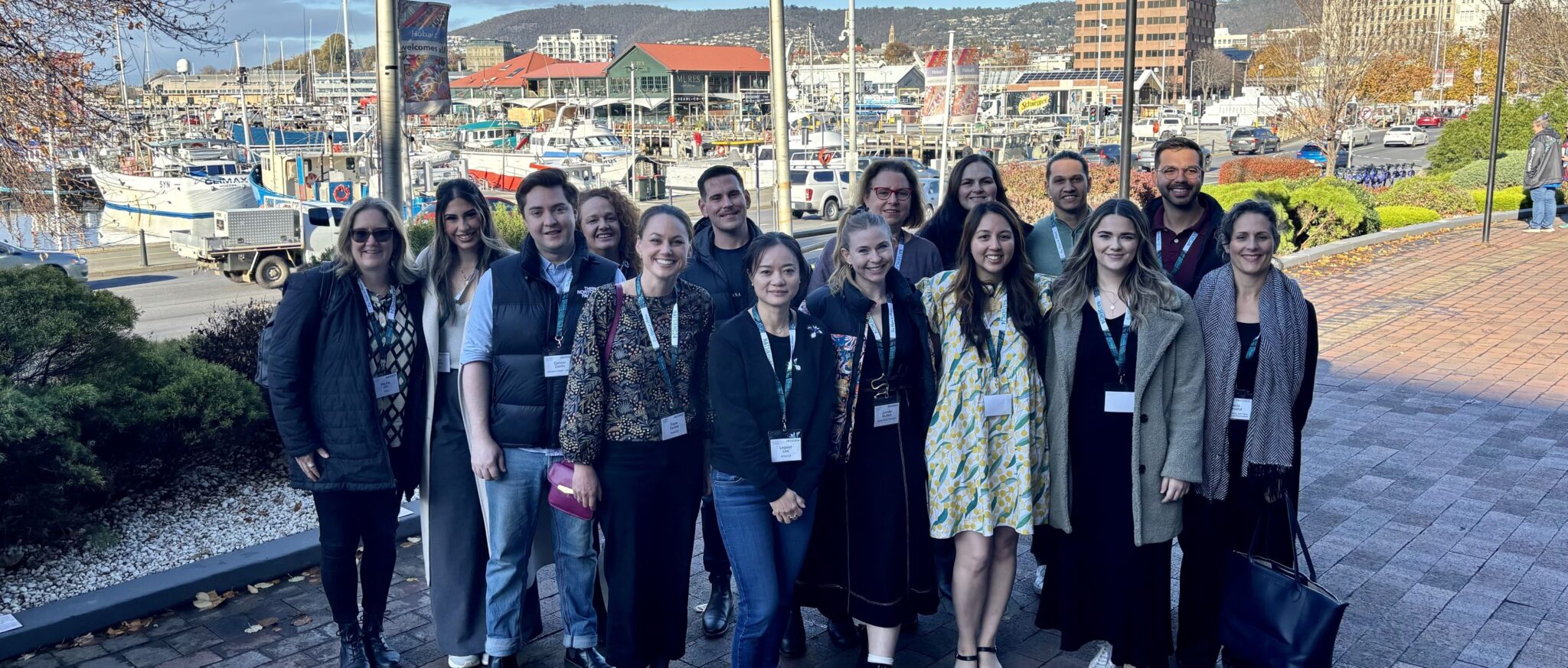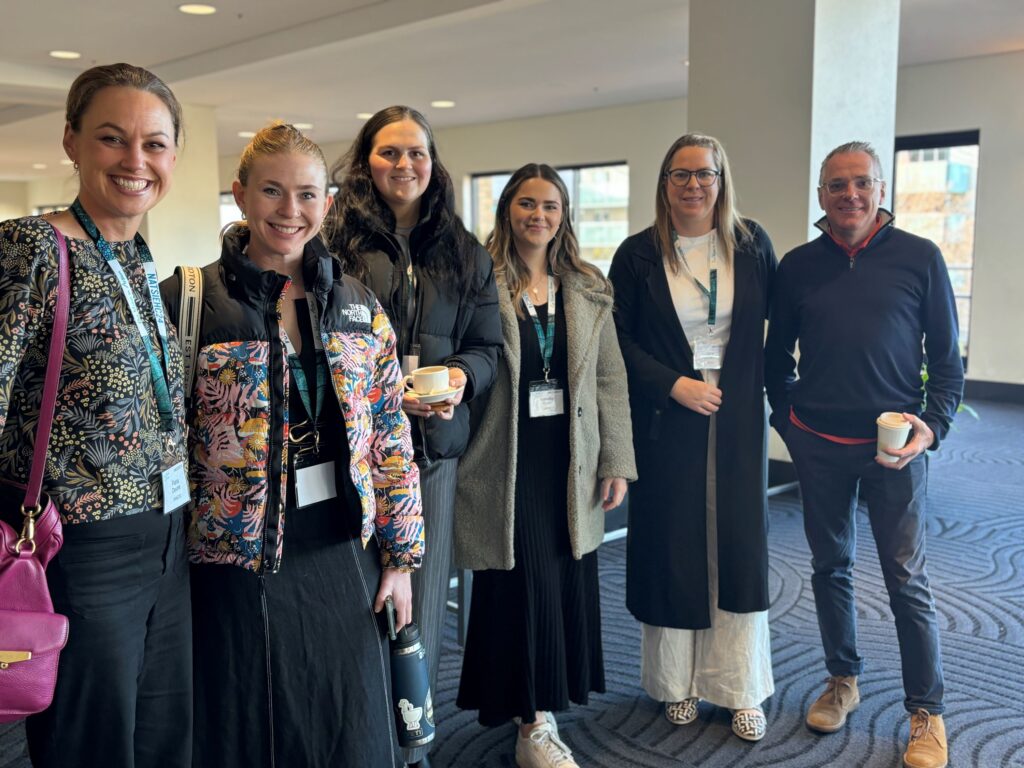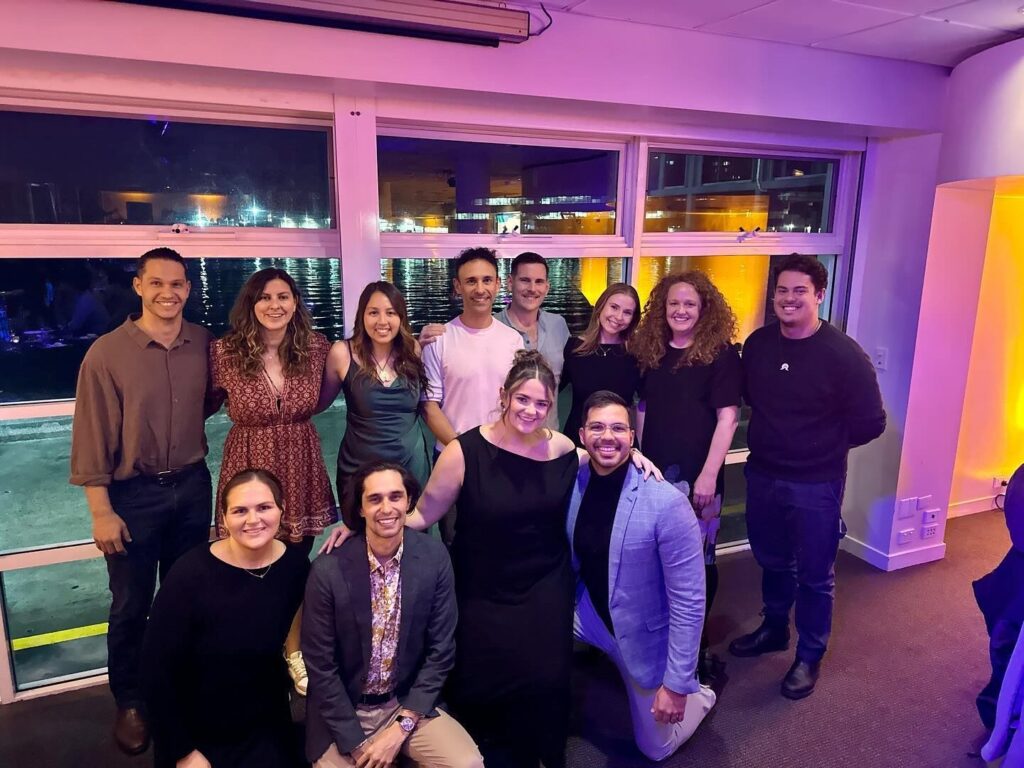The 2024 National Aboriginal and Torres Strait Islander Eye Health Conference (NATSIEHC24) recently concluded in nipaluna, lutruwita/Hobart, Tasmania. This landmark event, co-led by the First Nations Eye Health Alliance (FNEHA) and the University of Melbourne Indigenous Eye Health Unit (IEHU), brought together key stakeholders to advance eye health for First Nations peoples.
The conference (which from 2025 will be fully independent and community-controlled) focused on community-led initiatives and the importance of self-determination and collaboration. First Nation cultures, including those of the local Tasmanian Aboriginal (Palawa) people, were proudly shared and celebrated through dance, song, storytelling, art and poetry – creating a strong sense of place, belonging and interconnectedness.
RANZCO proudly sponsored NATSIEHC again this year and ANZEF provided scholarships for five medical students, one junior doctor (all six with support from Alcon Australia), as well as three RANZCO trainees to attend. ANZEF seeks to amplify First Nations voices and support the growth of the First Nations ophthalmology workforce. Attending NATSIEHC is an impactful part of the journey for aspiring First Nations ophthalmologists.

L-R: Pauhla Hill (Alcon), Laura Ferreira, Dr Connor Devlin, A/Prof Rosie Dawkins, Fiona Devine, Dr Thomas Mylne, Legend Lee, Jennifer Gulson, Dr Kristin Bell, Dr Hannah Wood (front), Kaleisha Cowan-Roberts (back), Assan Sam, Isabella Ryan, T’kido Titasey and Paula Llavallol.
Below are some perspectives from this year’s Conference, graciously provided by scholarship recipients.
“Without this scholarship, I would have never been able to afford the conference that proved to be such an invaluable experience, providing me with a deeper understanding of First Nations eye health issues, barriers, programs, and policies.
One of the key insights I gained was the profound impact of social determinants on eye health outcomes in Indigenous communities. The conference and speakers highlighted the complex interplay of factors such as rurality, limited access to culturally safe healthcare services, and the ongoing effects of intergenerational trauma, and how the combination of these things has led to decreased eye health. This understanding has reinforced the importance of adopting a holistic and culturally sensitive approach to addressing eye health disparities for all people regardless of rurality.
Furthermore, the conference provided a platform for sharing best practices and successful initiatives from various organisations and communities. I was particularly inspired by the collaborative efforts between ophthalmologists, healthcare workers, and community leaders in implementing culturally appropriate eye care programs such as the Lions Vision Van. These insights will undoubtedly inform my future endeavours in contributing to improved eye health outcomes for First Nations communities.

Beyond the academic and professional benefits, the conference offered an invaluable opportunity for networking and relationship-building that has been truly transformative for me. As an Indigenous medical student without any family members in the medical field, the chance to connect with ophthalmologists, trainee ophthalmologists, fellow medical students, and community healthcare workers has been an incredibly enriching and empowering experience. I am deeply grateful for my newfound mentorship and support offered by the ANZEF members, Fred Hollows Foundation representatives, RANZCO representatives and other organisational members. These connections have not only fostered in me a sense of belonging but have also provided me with a supportive network that I can rely on as I navigate the challenges and complexities of my medical journey.
Importantly, I hope that these relationships will form the foundations of a long-term professional network that will push me to better serve First Nations communities and advance equitable eye care as a future practitioner. Having a group of such diverse mentors with different guidance, wisdom and lived experiences will undoubtedly shape my future approaches to delivering culturally safe and responsive care, ensuring I make a meaningful impact in addressing the eye health disparities faced by First Nations people. I am committed to applying the knowledge and insights gained at the conference to my studies and clinical practice, ensuring that I approach my work with a culturally safe lens. Additionally, the conference has sparked multiple ideas in me for potential research projects centred around First Nations health.
I’d like to extend my heartfelt gratitude to ANZEF for this incredible opportunity. The National Aboriginal and Torres Strait Islander Eye Health Conference has been a transformative experience, equipping me with the knowledge, connections, and motivation to finish medical school and soon start to contribute to improving eye health care. Thank you for your support and for investing in my future as well as the development of future healthcare professionals committed to advancing equitable and culturally safe eye care for all Australians.”
“Attending the National Aboriginal and Torres Strait Islander Eye Health Conference in Hobart, thanks to the support of ANZEF, was an incredibly enriching experience.
As an Indigenous woman, the conference was a culturally safe space where I felt truly empowered. Being surrounded by First Nations people and strong allies committed to tackling health inequities was both inspiring and moving. I quickly realised that the informal conversations during morning tea were just as valuable as the keynote speeches and structured sessions. These conversations allowed me to exchange ideas and experiences, deepening my understanding of the topics discussed. The sense of community and support among everyone was amazing, and seeing the collective effort and passion for improving Indigenous health outcomes was encouraging for our future.
One of the best parts of the conference was the chance to build relationships and networks. I made friends with other medical students, junior doctors, and registrars from all over Australia. These connections are priceless, offering mutual support and a network of like-minded individuals dedicated to strengthening health outcomes for our people. Their guidance and support will be crucial as I move forward in my career.

Attending NATSIEHC24 was a transformative experience. The knowledge gained, relationships built, and inspiration received will have a significant impact on my professional journey in the field of Indigenous health.”
See photos taken at NATSIEHC24!
ANZEF is the philanthropic arm of the Royal Australian and New Zealand College of Ophthalmologists (RANZCO).
RANZCO is a registered charity with the Australian Charities and Not-for-profits Commission (ACNC) Charities Services in New Zealand (registration no: CC53935).
Charity donations to ANZEF of $2 or more in Australia and $5 or more in New Zealand are tax-deductible.
ANZEF acknowledges and pays respect to the Traditional Owners of the lands and waters throughout the world, and to their Elders and ancestors, past and present.
© 2022 Web design and development by Marketing Media